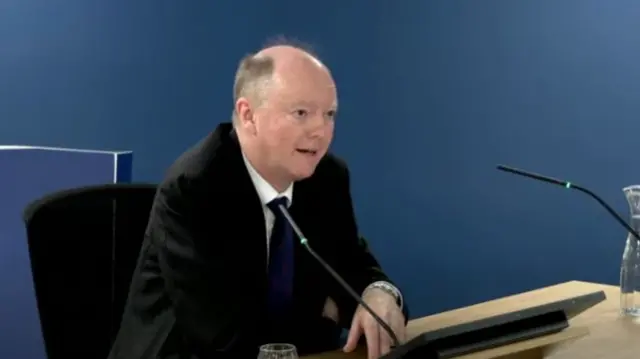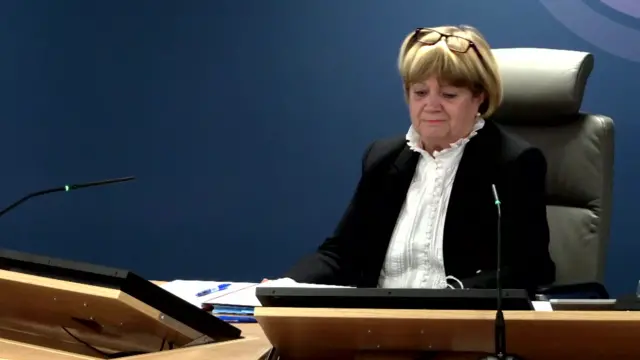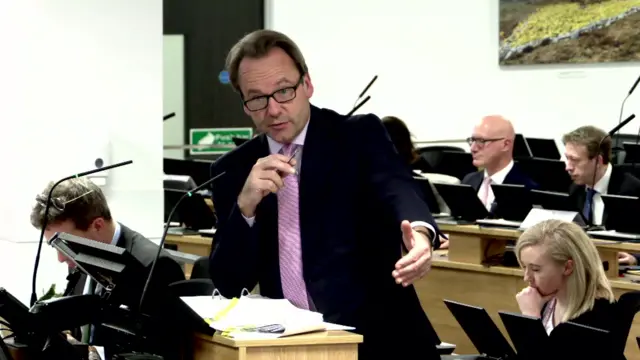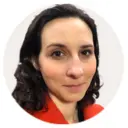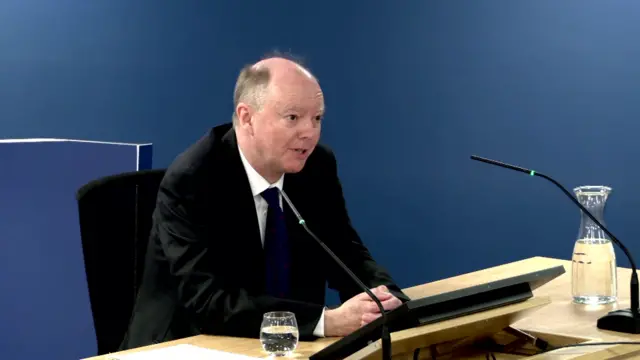Inquiry resumespublished at 15:40 GMT 21 November 2023
Baroness Hallett has reopened questions to Sir Chris Whitty.
She emphasises today's hearing will finish on time at 16:30, as England's chief medical officer will need to return tomorrow.
If you'd like to watch his evidence in full, click the play button at the top of this page.
